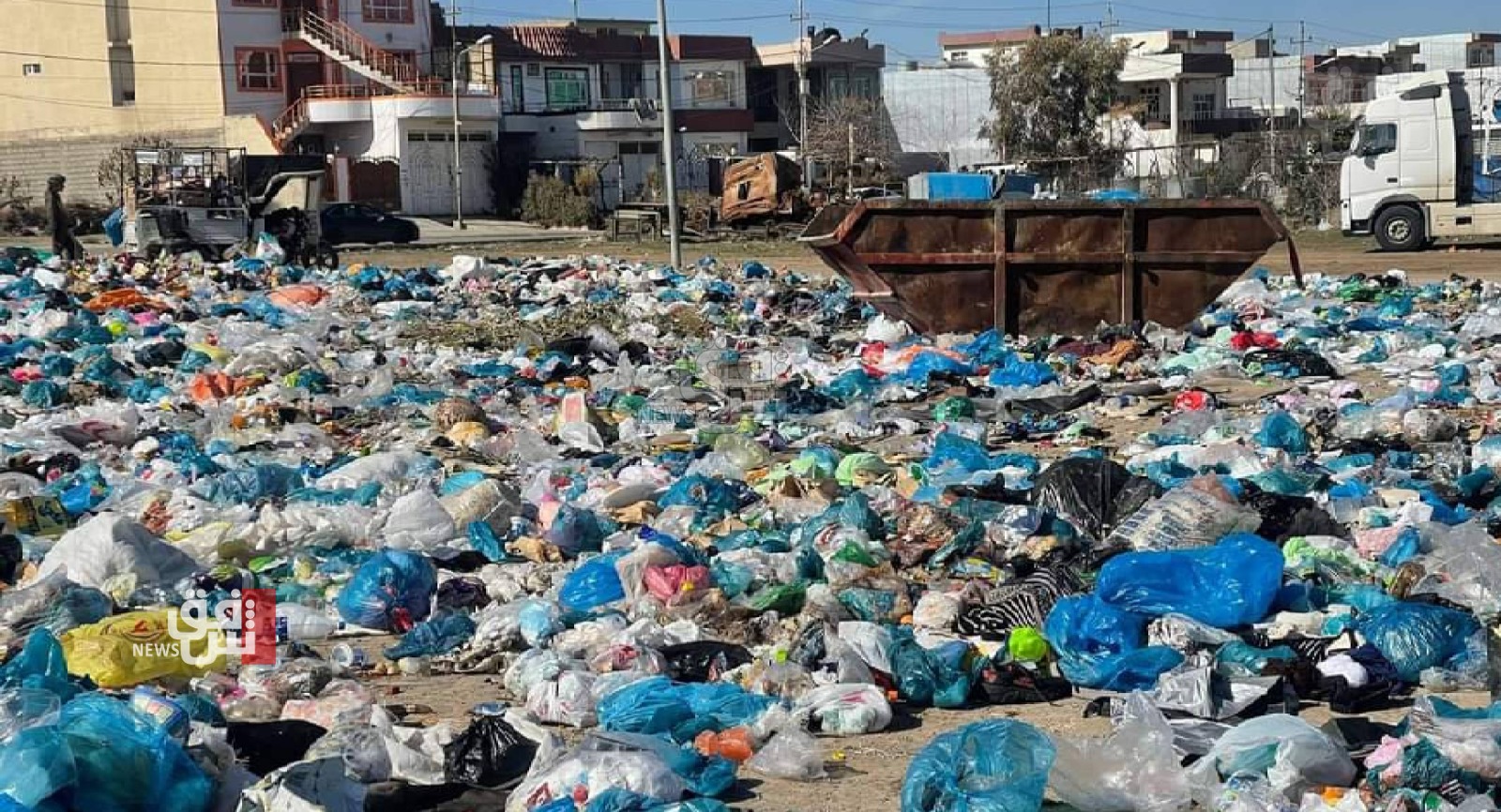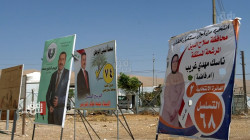Waste in Iraq: a significant untapped resource lacking investment

Shafaq News / Iraq, as a nation, produces a substantial amount of waste, approximately 20 million tons per day. The municipality of Baghdad alone is responsible for sorting approximately 9,000 tons of waste daily. This vast quantity of waste presents an opportunity to engage in recycling practices, which not only protect the environment but also create employment opportunities for the unemployed.
Recyclable materials include metals like iron, aluminum, and steel, as well as plastic, glass, paper, cardboard, car tires, textile materials, and even wastewater.
According to the United Nations, in 2014, approximately 41 million tonnes of e-waste were disposed of in landfills, with only one-sixth of it being properly recycled.
Despite technological and industrial advancements in other countries, Iraq continues to rely on traditional waste disposal methods, failing to harness the potential benefits of recycling.
In an attempt to manage waste and mitigate odors, residents in certain governorates of Iraq resort to burning significant amounts of waste. However, this practice not only exacerbates the country's existing environmental pollution resulting from war remnants and scattered garbage but also releases harmful fumes that pose health risks to individuals.
Environmental expert Ahmed Saleh describes Iraq's approach to waste management as peculiar, highlighting the harm it inflicts on nature and the environment, as well as the untapped potential for economic gain.
Immense neglected wealth
According to Saleh, during an interview with the Shafaq News Agency, waste should not be solely perceived as harmful and something to dispose of, but rather as an immense source of wealth and an economic opportunity that many countries around the world rely on to generate energy. He highlights that the decomposition of waste produces methane gas and other gases that can be utilized in the production of new materials.
Saleh provides several examples to illustrate the potential of waste utilization. He mentions that the sugar factory used to produce baccarosene, while sugar cane waste was directed to the paper factory. Peat moss, on the other hand, served as an alternative soil, and waste from plastic factories was employed in the production of durable tools that underwent successful recycling.
Moreover, Saleh explains that waste from date production can be transformed into vinegar and jams, while carpentry waste finds application in the manufacturing of doors and pressed wooden boards.
He further elaborates on the waste generated by vegetable oil factories, which often ends up being dumped into rivers. Within these factories, there are auxiliary plants known as powder factories that produce a significant amount of waste materials, including sulfonic, Kostek, and other substances. However, these materials can be repurposed into items like pesticides, fertilizers, phosphates, or microelements that can be incorporated into the fertilizer manufacturing process, particularly for nurseries.
Saleh emphasizes that numerous factories persist in discarding their manufacturing waste without capitalizing on the opportunity to recycle and derive benefits from it. This highlights the untapped potential within various sectors, where waste can be transformed into valuable resources through recycling practices.
Specialists emphasize the need to invest in waste recycling due to its economic value. They propose the establishment of projects that focus on industrial recycling to manufacture various products, including organic fertilizer from household waste, aluminum and iron sheets, bags, preservation cans, and rubber materials.
Economic researcher Ahmed Eid states that the economic significance of waste recycling lies in job creation, material self-sufficiency, and the potential for exporting recycled products. This would help reduce the outflow of hard currency to import goods from countries such as Iran, Turkey, and China, as these commodities could be produced locally through waste recycling.
According to Mohammed al-Rubaie, the director-general of the Baghdad Municipality's Department of Relations and Information, the municipality is actively exploring effective ways to utilize waste. This includes generating power or methane gas from waste, as well as sorting and selling it for recycling purposes.
Al-Rubaie explains that a committee, led by the Prime Minister and composed of representatives from the Mayor of Baghdad, the Ministries of Environment and Electricity, the National Investment Commission, and the Council of Advisors in the Council of Ministers, has been established to address waste recycling initiatives.
Within the municipality, a subcommittee has been formed, comprising the director of the solid waste department, the Directorate of Planning and Follow-up, and the Directorate of Sewage. This subcommittee has been working diligently for the past six months, conducting multiple meetings and evaluating proposals from around 40 companies interested in the project. Most of these companies are foreign, with some partnering with Iraqi capital.
As the waste recycling project is an investment undertaking, it is essential for the Mayor of Baghdad to present it to the National Investment Commission. The commission will review the proposals and select the most suitable offer for contracting by the Municipality of Baghdad. Currently, the offers are under study, awaiting the approval of the best among them. Al-Rubaie expresses hope for the success of this endeavor in resolving the waste management crisis in Baghdad, highlighting the significant untapped resource that waste represents in Iraq.
